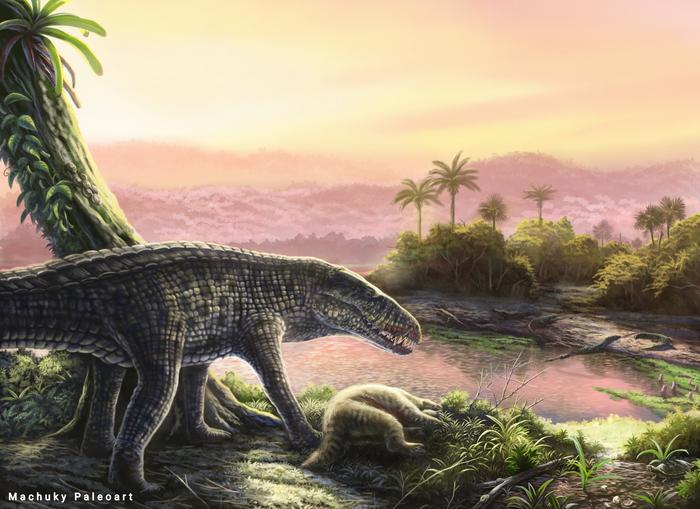Now Reading: Prehistoric Crocodile Fossil Redefines Extinction Timeline by 5 Million Years
-
01
Prehistoric Crocodile Fossil Redefines Extinction Timeline by 5 Million Years
Prehistoric Crocodile Fossil Redefines Extinction Timeline by 5 Million Years

Swift Summary:
- Paleontologists discovered fossils of sebecids, a land-based crocodile-like predator species, in the Dominican Republic. These fossils date back 6 million years, showing sebecids survived 5 million years longer than previously believed.
- The fossil findings include one tooth and two vertebrae, attributed to these apex predators wich were thought to have gone extinct 11 million years ago.
- Sebecids were members of Notosuchia – an extinct group of diverse crocodilians that primarily lived on land rather than water.
- Researchers theorize sebecids crossed land bridges from South America to the Caribbean islands during earlier geological periods before these bridges submerged.Once isolated on the islands, they remained largely unchallenged as apex predators.
- Earlier evidence includes serrated teeth found in Cuba and Puerto Rico dating back up to 29 million years but lacked definitive attribution until this recent discovery.
- Scientists speculate that caribbean islands may serve as refuges for species extinct elsewhere. More fossil discoveries could emerge as deeper excavations are conducted in historically underexplored areas like roadbed sites.
Indian opinion Analysis:
This research not only contributes to paleontology but also adds layers to understanding biodiversity dynamics across geographical locations like islands. For India, such scientific findings emphasize the need for sustained investment into research across unique ecological zones such as the Andaman and Nicobar Islands or Western Ghats – where similar phenomena could emerge with comprehensive exploration.
Moreover, it demonstrates how isolated environments can harbor species long after extinction events elsewhere-an insight beneficial for India’s biodiversity conservation policies such as safeguarding regional endemic species against invasive threats. As nations push forward advancement activities like road construction or mining akin to those sparking discoveries here, incorporating environmental oversight might pave new paths both for infrastructure and science.
India has already engaged in dinosaur-related fossil studies via states like Gujarat (e.g., Rajasaurus narmadensis). Bolstering collaborative frameworks with international scientific communities conducting extensive studies would enrich India’s understanding of global evolutionary narratives while strengthening its recognition within academia globally.


























